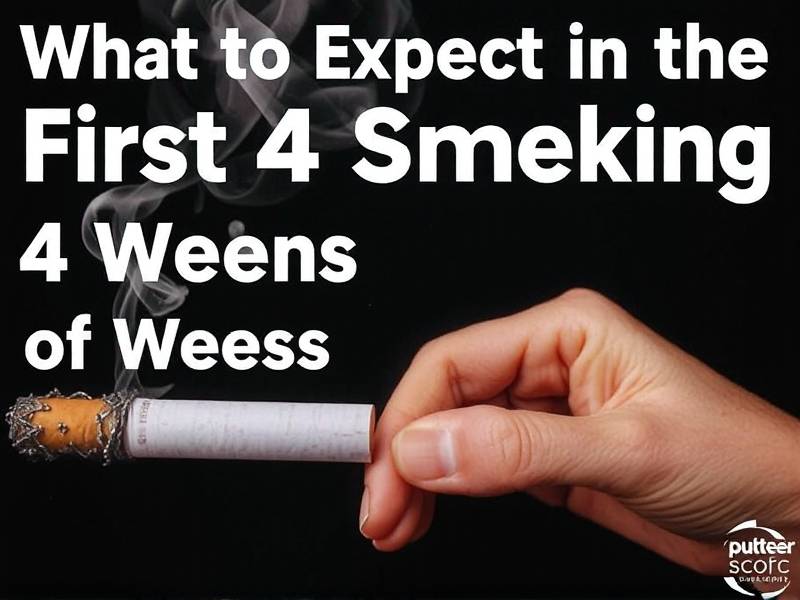What to Expect in the First 4 Weeks of Quitting Smoking
Navigating the First 4 Weeks of Your Smoking Quit Journey
Introduction: Embarking on a journey to quit smoking is a significant step towards a healthier life. Understanding what to expect in the initial weeks can help you navigate through the challenges and stay motivated. In this article, we'll delve into the common experiences and milestones you can anticipate during the first four weeks of quitting smoking.
Understanding Nicotine Withdrawal

1. Physical Symptoms
During the first few days, you might experience withdrawal symptoms as your body adjusts to the absence of nicotine. These symptoms include:

- Headaches
- Irritability
- Insomnia
- Increased appetite
- Digestive issues
These symptoms are a sign that your body is on its way to healing itself from the effects of smoking.
2. Mental Challenges
The psychological aspect of quitting smoking can be equally challenging. You might find yourself dealing with:
- Cravings for cigarettes
- Anxiety or stress
- Mood swings
Remember that these feelings are temporary and will diminish as your body becomes less dependent on nicotine.
Coping Strategies for Withdrawal
To manage withdrawal symptoms effectively, consider these strategies:
- Stay Hydrated: Drink plenty of water to flush out toxins and keep your body hydrated.
- Eat Healthy: A balanced diet can boost your energy levels and improve your mood.
- Stay Active: Regular exercise can help reduce withdrawal symptoms and improve your overall well-being.
- Identify Triggers: Recognize situations that trigger cravings and plan accordingly.
Tracking Progress
It's essential to track your progress during the first four weeks to stay motivated:
- Use a Quit Smoking Diary: Record any cravings, triggers, or withdrawal symptoms you experience.
- Celebrate Milestones: Acknowledge small victories like not smoking for 24 hours or a full week.
Seeking Support
Quitting smoking is easier with support from friends, family, or professionals:
- Join Support Groups: Connect with others who are going through similar experiences.
- Consider Therapy: A therapist can provide guidance and coping strategies tailored to your needs.
The Role of Nicotine Replacement Therapy (NRT)
Nicotine replacement therapy can help alleviate withdrawal symptoms by providing controlled doses of nicotine without the harmful effects of tobacco smoke:
- Gum, Lozenges, or Patches: These products deliver nicotine slowly into your bloodstream.
- Inhalers or Nasal Sprays: These provide immediate relief for cravings.
Conclusion:
The first four weeks of quitting smoking may seem daunting, but understanding what to expect and implementing effective strategies can make it more manageable. By staying hydrated, eating healthy, staying active, identifying triggers, seeking support, and considering NRT if needed, you'll be well on your way to a smoke-free life. Remember that persistence is key – every day without smoking is a step towards better health!
